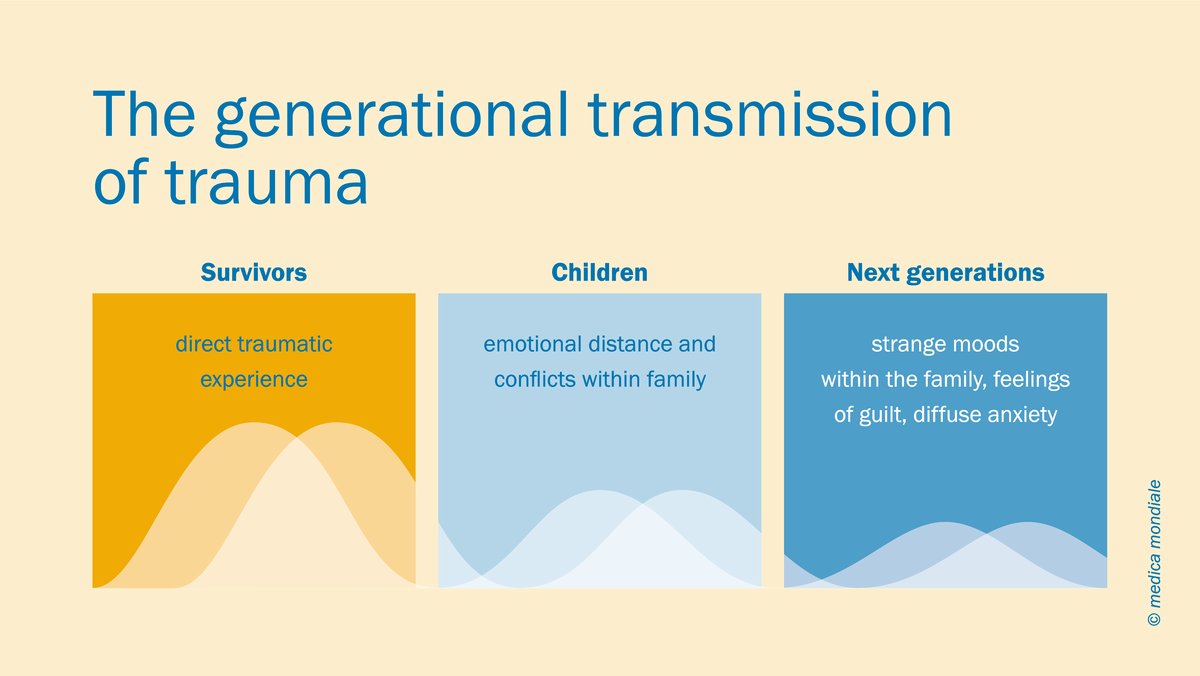Thread by Dr. Nicole LePera, Psychologist
- Tweet
- Feb 12, 2023
- #Wisdom
Thread
I spent most of my adult life dissociated. I had almost no memories, and felt like my life was a haze or not even real.
Here's why:
Here's why:
Dissociation is an adaptive survival response to: chronic stress, overwhelm, or trauma.
It allows us to keep going and functioning as the brain goes into survival mode.
It allows us to keep going and functioning as the brain goes into survival mode.
Growing up, my home life was very chaotic.
Both of my parents had their own intergenerational trauma that left them with poor coping skills and an inability to self regulate.
Both of my parents had their own intergenerational trauma that left them with poor coping skills and an inability to self regulate.
Families with adults who cannot self regulate tend to have emotional enmeshment.
Emotional enmeshment is a lack of emotional boundaries between family members.
Emotional enmeshment is a lack of emotional boundaries between family members.
Emotional enmeshment looks like:
- one family member creates the emotional environment of the home
- family members find connection through chaos, shared worry, or drama cycles
- triangulation: members involved in each others issues without boundaries
- one family member creates the emotional environment of the home
- family members find connection through chaos, shared worry, or drama cycles
- triangulation: members involved in each others issues without boundaries
Lack of emotional regulation can also make mundane situations extremely stressful.
For example: leaving the house, forgetting something, a missed appointment, or any other natural life experience can become a near crisis situation.
For example: leaving the house, forgetting something, a missed appointment, or any other natural life experience can become a near crisis situation.
My mom also struggled with coping skills around her anger. When she was upset or extremely disappointed, she would give the silent treatment. Sometimes for days, weeks, or even months.
Childhood trauma is often misunderstood because people see events from an adult perspective.
From my childhood perspective, my mom was withdrawing her love and denying my existence. I didn't have the ability to understand: she's stressed out herself.
From my childhood perspective, my mom was withdrawing her love and denying my existence. I didn't have the ability to understand: she's stressed out herself.
I internalized this in a shame based way: "I'm not lovable"
Children personalize events, and blame themselves to keep the relationship with parent figures who their survival depends on.
Children personalize events, and blame themselves to keep the relationship with parent figures who their survival depends on.
At the same time, I was witnessing adults who were chronically dysregulated.
This meant: lots of yelling, explosive emotional outbursts, and stonewalling (shut down.)
This meant: lots of yelling, explosive emotional outbursts, and stonewalling (shut down.)
Note: this doesn't mean that functional homes don't have emotional outbursts, or at times yelling.
We're human.
It means that in functional homes, there is dialogue and repair after events. Ex: "I'm so sorry I yelled at you like that, that was wrong."
We're human.
It means that in functional homes, there is dialogue and repair after events. Ex: "I'm so sorry I yelled at you like that, that was wrong."
By age 6, I was having extreme anxiety.
I channeled this anxiety though putting in my room in order over and over again (later I would be diagnosed with OCD, but this was an adaptive response to my lived environment.)
I channeled this anxiety though putting in my room in order over and over again (later I would be diagnosed with OCD, but this was an adaptive response to my lived environment.)
I also started having nightmares.
Usually, they were about my parents dying or someone breaking in. I never talked to anyone about this because we didn't talk about our issues.
Usually, they were about my parents dying or someone breaking in. I never talked to anyone about this because we didn't talk about our issues.
At a young age, I began dissociating.
I have very few childhood memories.
My brain was saying: "it's not safe here, but I'm going to help you cope and adapt."
I have very few childhood memories.
My brain was saying: "it's not safe here, but I'm going to help you cope and adapt."
Ultimately, it wasn't until my late 20's when I noticed a pattern of my partners telling me I was "zoned out."
Friends would say, "remember when we did x" and I couldn't actually recall the memory.
Friends would say, "remember when we did x" and I couldn't actually recall the memory.
I would have a familiar feeling that I was there, but I noticed I couldn't place myself there like other people could.
It's like I was sleepwalking through life, watching myself overhead. I was existing, not living.
It's like I was sleepwalking through life, watching myself overhead. I was existing, not living.
I share this personal story because I know there are many people like me who experience this.
To some degree, we all dissociate. You might do this when you jump on your phone and scroll mindlessly, losing track of time and not being present in your body.
To some degree, we all dissociate. You might do this when you jump on your phone and scroll mindlessly, losing track of time and not being present in your body.
There's nothing bad or wrong with this. It's part of the human experience.
Issues can come up when the dissociation is chronic, you feel like you're not actually living, and when it blocks you from connecting with people you love.
Issues can come up when the dissociation is chronic, you feel like you're not actually living, and when it blocks you from connecting with people you love.
I've spent the past years studying dissociation and understanding it as an adaptation.
Through intentional practices like movement, breathwork, relationship connection, creating, writing, sleep hygiene, nutrition I've been able to return to my body.
Through intentional practices like movement, breathwork, relationship connection, creating, writing, sleep hygiene, nutrition I've been able to return to my body.
Do you chronically dissociate?
Share in the comments.
Share in the comments.
Follow: @Theholisticpsyc
I write threads every day on how to heal yourself.
Join the waitlist for SelfHealers Circle
theholisticpsychologist.com/waitlist/
My new workbook:
howtomeetyourself.com
I write threads every day on how to heal yourself.
Join the waitlist for SelfHealers Circle
theholisticpsychologist.com/waitlist/
My new workbook:
howtomeetyourself.com
Mentions
There are no mentions of this content so far.

